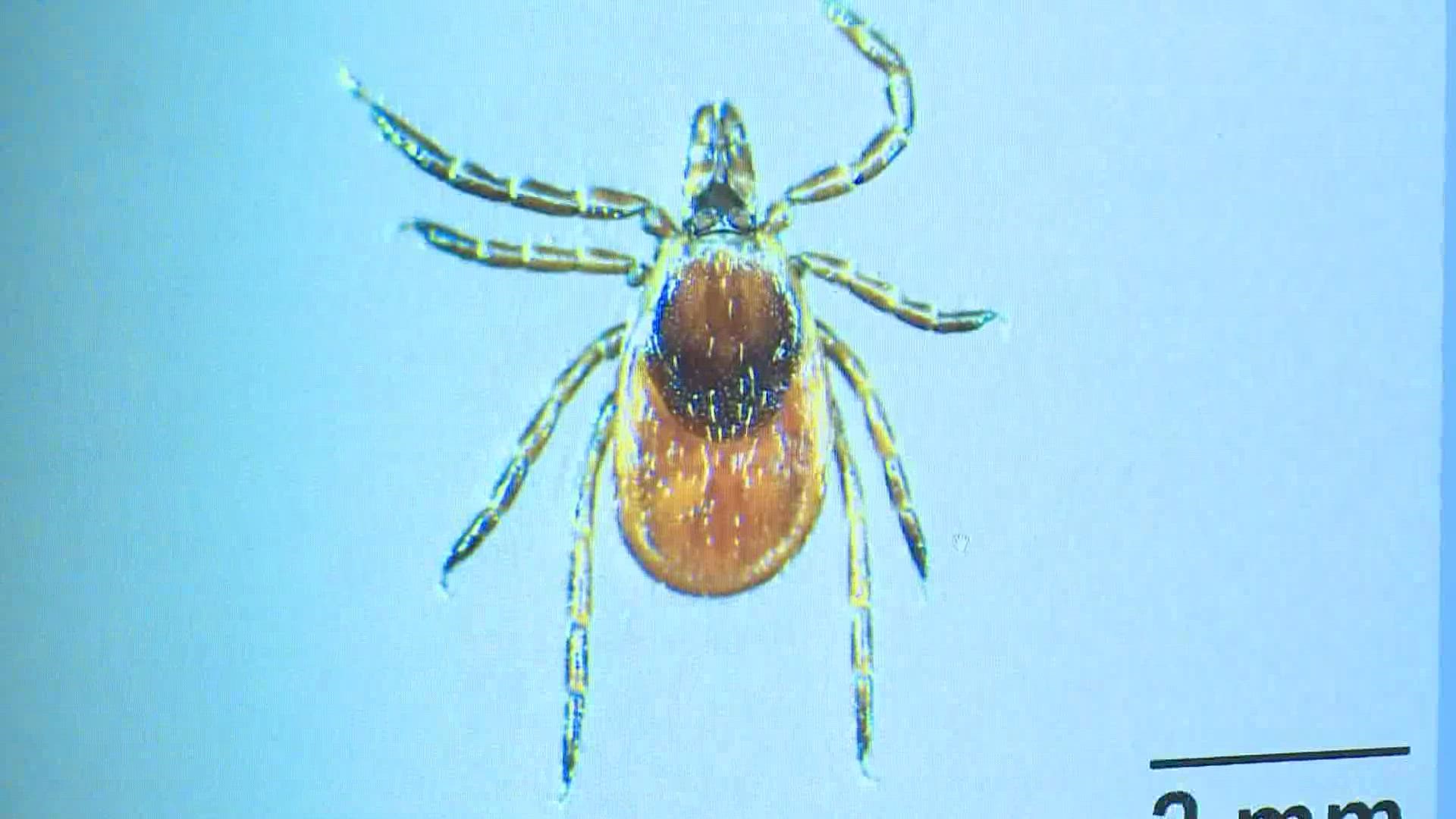MAINE, USA — In a release Wednesday, the Maine Center for Disease Control and Prevention urged Maine residents and visitors to take precautions against tick bites this fall.
Maine typically experiences increased adult deer tick activity from late September through November. Deer ticks are commonly found in wooded, leafy, and shrubby areas, which may include areas around the yard.
Deer ticks can carry the bacteria that cause tickborne diseases. In Maine, these include Lyme disease, anaplasmosis, babesiosis, hard tick relapsing fever, and Powassan virus. These germs spread through the bite of an infected deer tick.
This year, as of Sept. 29, the Maine CDC said it has recorded:
- 1,977 cases of Lyme disease.
- 677 cases of anaplasmosis.
- 161 cases of babesiosis.
- 10 cases of hard tick relapsing fever, which the U.S. Centers for Disease Control and Prevention formerly identified as B. miyamotoi or B miyamotoi disease.
- 4 cases of Powassan encephalitis.
This is a record-high year for Powassan encephalitis cases, according to state health officials, who said Maine is also on track to break records for anaplasmosis, babesiosis, and Lyme disease cases this year.
The most commonly reported symptom of Lyme disease in Maine is a “bull’s-eye” rash. The Maine CDC said other common symptoms of tickborne disease include body aches, chills, fever, headache, and swollen lymph nodes. The Maine CDC recommends that if you experience any of these symptoms, talk to a health care provider and mention any recent tick exposure.
The Maine CDC also recommends taking the following steps to limit exposure to ticks and tickborne diseases:
- Know when you are in tick habitat and use caution.
- Use an EPA-approved repellent like DEET, picaridin, IR3535, or oil of lemon eucalyptus.
- Wear light-colored clothing that covers the arms and legs and tuck pants into socks.
- Perform tick checks daily and after any outdoor activity.
For more information:
Visit www.maine.gov/dhhs/vectorborne for information about tickborne diseases.
Visit www.maine.gov/dhhs/tickfaq for frequently asked questions about ticks.
Visit ticks.umaine.edu for more information about tick identification and testing through the University of Maine Cooperative Extension Tick Lab.

